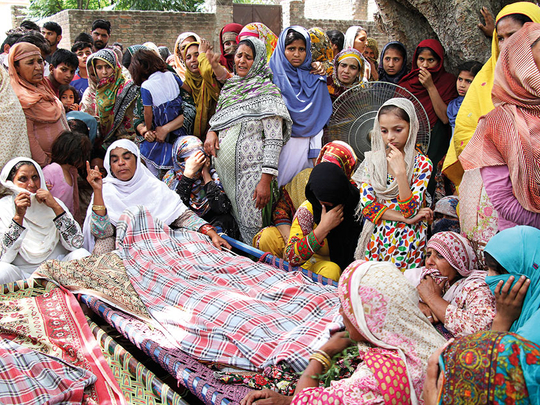
Dubai: The news of a ceasefire on the de facto border in disputed Kashmir, divided between India and Pakistan, has come as a big surprise and welcome relief to everyone — amid fears of another war between the arch-rivals.
It was definitely a welcome move to implement the ceasefire agreement first signed in 2003 to ensure peace at the Kashmir Line of Control (LoC) and the Working Boundary between the nuclear powered restive neighbours.
The innocent Kashmiri people — who under fire from both sides of the LoC lost hundreds of lives and were forced to migrate — must be at peace now as they can go back to their homes and restart normal life.
But analysts believe there is need to do more to build on this positive development.
“The blustering parades to mark the flag-lowering ceremonies by soldiers from both sides should be changed to a ceremony to exchange flowers to spread a message of peace,” he told Gulf News.
Warriach said the next step should be to open trade routes and allow interaction between people across the LoC.
“Peace in Kashmir is linked to the peace in the region and the way to economic development,” he added.
For Warriach, backdoor diplomacy was very successful in the past and it should be resumed to move forward.
“The tit-for-tat unprovoked firing at LoC had created a hostile atmosphere, leaving no room for the dialogue process to start,” he noted.
He noted the decision would have a lasting impact on the efforts being initiated for peace and stability in the region, after a meeting of security advisers of both the countries lately.
The National Security Council of Pakistan has already made this decision to go ahead with the agreement to fully implement the ceasefire in order to move forward, he added.
“This pledge of implementing the understanding on 2003 ceasefire will prove to be a good gesture of confidence-building measures to ease tensions between India and Pakistan,” he noted. Waleed believes both sides should initiate further confidence-building measures by allowing people-to-people contacts, leading towards secretary-level talks in the near future.
He also called for the resumption of the composite dialogue, which came to a halt after the Mumbai attacks in 2008.












